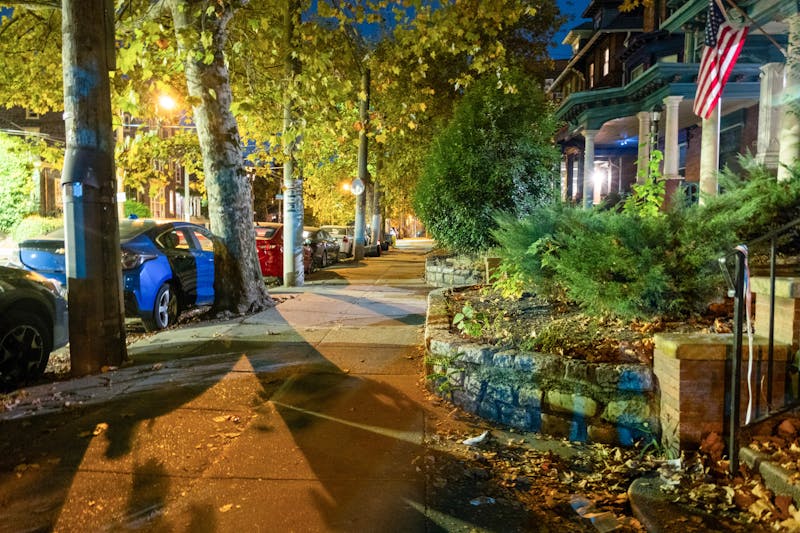Hi, I'm the blond-haired quarterback for the varsity football team. I like beer and sex, so vote for me to be your class president."
Wow. I didn't think I'd hear that again after high school, but, oh, how I was wrong. Since the first months of my freshman year at Penn, I have been disappointed year after year with frivolous and low-brow campaigns by the candidates, as well as the apathy of the student body. Unfortunately, enough people have voted in the past for campaigns like this to continue to be a part of our campus political culture.
As any Econ student will tell you, the supply of the good is dependent on the demand for the good, and in the same way, political campaigns on campus reflect the character of the student body that continues to support such an atmosphere.
Does this mean that the average Penn voter responds more to belching contests and body paintings than passion, diligence and intelligence? Call me an idealist, but I refuse to believe so.
I think we're better than this. We are intelligent people who have deep passions and are capable of making great decisions. So if the average Penn voter is not a doofus, what could it be?
Simply put, our pathetic political scene exists because we don't take it very seriously. And can you blame us? Despite the Undergraduate Assembly's massive campaign to promote itself as an organization that "does stuff," we're not convinced that our student government has the capacity to affect our lives in a meaningful way.
Sure, the UA is active and can make or influence decisions involving large amounts of money and other resources. They pushed for the outdoor basketball courts near High Rise East and fought to lower the dining plan requirement for incoming freshmen. And believe it when it says it's doing other things for you, too. Unfortunately, as important as all this may sound, it must be said that these accomplishments are practically inconsequential to the larger wheelings and dealings of the University.
Sorry to burst your bubble, kiddo. Penn is not a democratic state. It is an institution of research and higher education, dedicated to furthering profits, knowledge and prestige. Its governance and policy-making, financial and public relations decisions, among others, are conducted entirely by hired professionals working behind closed doors with the University's best interests in mind.
Student representatives in the University Council and other administrative bodies of the University exist to humor us, and among the other branches of student government, the Student Committee on Undergraduate Education is pretty much the only body the university administration pays any attention to at all. Self-government simply doesn't exist at Penn.
This, however, is not a bad thing. Would you want our pizza-eating champion to decide whether to invest over a billion dollars in one stock or another? Would you want the kid with the funny campaign posters to decide which of the political science professors would get tenure this year?
So, though I am a supporter of democracy and a firm believer in a democratic education, I am more than happy to leave sovereignty in the hands of individuals who have a vested interest in the University's overall success along with exponentially greater qualification than those who are only here for four years to get an undergraduate degree.
While we leave the real governance to the big guys upstairs, however, we should not abandon our student government. It serves a legitimate purpose. It has the potential to be the "voice of the undergraduates," not to ourselves, but to University administration.
In this sense, student government is a misnomer. Rather than government, a more appropriate name for the group would be something closer to "Student Advocacy Group."
This has great implications. A slight shift in focus, from being our student government to my means of pushing the administration for changes that I care about could alter the political landscape in a great way.
Only students with vested interests will bother to participate, but they will do so at a more local, personal level that Robert Putnam calls "civil society."
In the near future, this may give rise to other student groups who feel they represent student interests better, creating competition with the UA for the right to represent us. The political atmosphere at Penn would become exciting, with much more at stake during elections than will be seen in a few weeks, as the freshman class votes.
That way, whiny columnists like myself may have to acknowledge that undergraduates are passionate after all. Now wouldn't that be something?
Jooho Lee is a junior History and Political Science major from Los Angeles, Calif.
The Daily Pennsylvanian is an independent, student-run newspaper. Please consider making a donation to support the coverage that shapes the University. Your generosity ensures a future of strong journalism at Penn.
DonatePlease note All comments are eligible for publication in The Daily Pennsylvanian.







